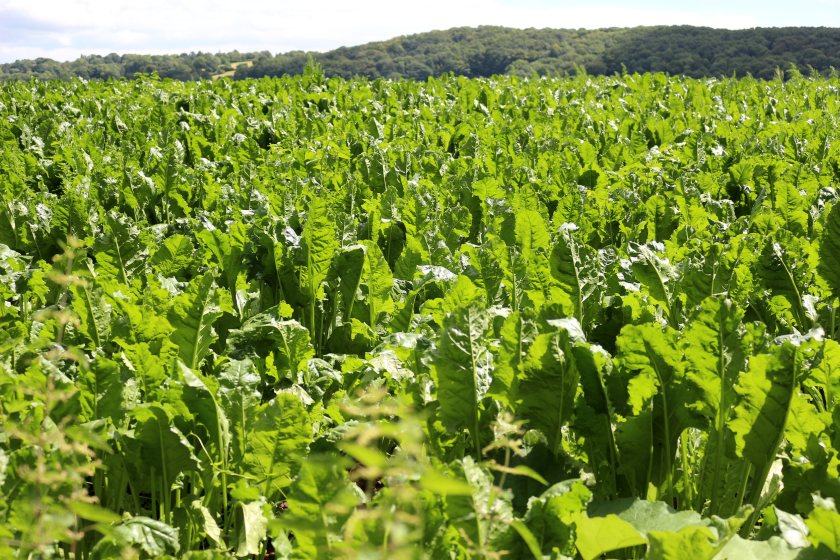Emergency authorisation for beet moth treatment granted

NFU Sugar and British Sugar have secured emergency authorisation for the use of Coragen to help growers manage the increasing threat posed by beet moth in 2025.
The authorisation, granted for a single application, is effective from 4 July to 30 September 2025 and is subject to strict usage conditions.
The development comes amid ongoing drought stress, leaving crops more vulnerable to infestation.
Exposed crowns are providing ideal conditions for beet moths to lay eggs and for larvae to burrow into the heart of the plant, increasing the potential for crop loss.
While beet moth has historically not been a major concern in the UK, the pest—typically found in Mediterranean and Eastern European regions—has been increasingly detected on British farms.
Warmer, drier conditions are believed to be supporting its reproduction and spread, with pheromone traps already indicating elevated moth numbers this year. Migration of the pest could continue until October, depending on the weather.
Farmers applying Coragen must record the date and location of treatment, the number of hectares treated, the percentage of crop affected, and ensure that treated sugar beet tops are not grazed or fed to livestock.
The Coragen treatment is recommended at the egg hatch stage, ideally when approximately 10% of plants show heart leaf damage, a threshold used in several European countries.
To ensure the active ingredient effectively reaches the target caterpillars, high water volumes are required to penetrate the crop canopy.
Full details of the authorisation, including usage terms and stewardship guidelines, are available on the British Beet Research Organisation (BBRO) website.
Growers are also being encouraged to send plant samples to the BBRO Plant Clinic to support industry efforts in better understanding the biology and behaviour of this emerging pest.
British Sugar said it will follow up with all growers following the expiry of the authorisation period to gather information on Coragen usage during the 2025 season.








